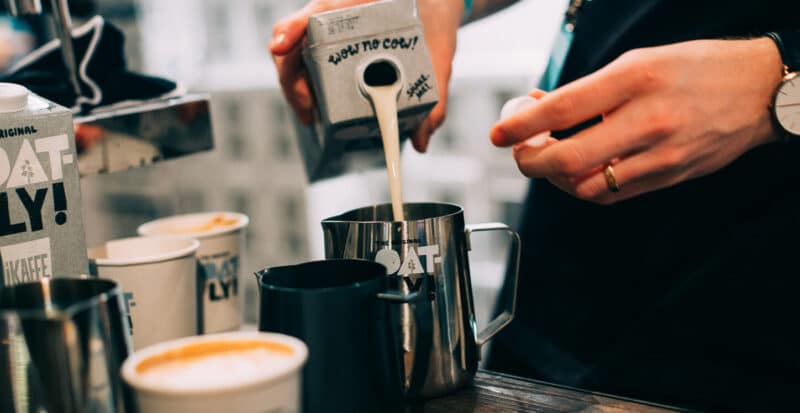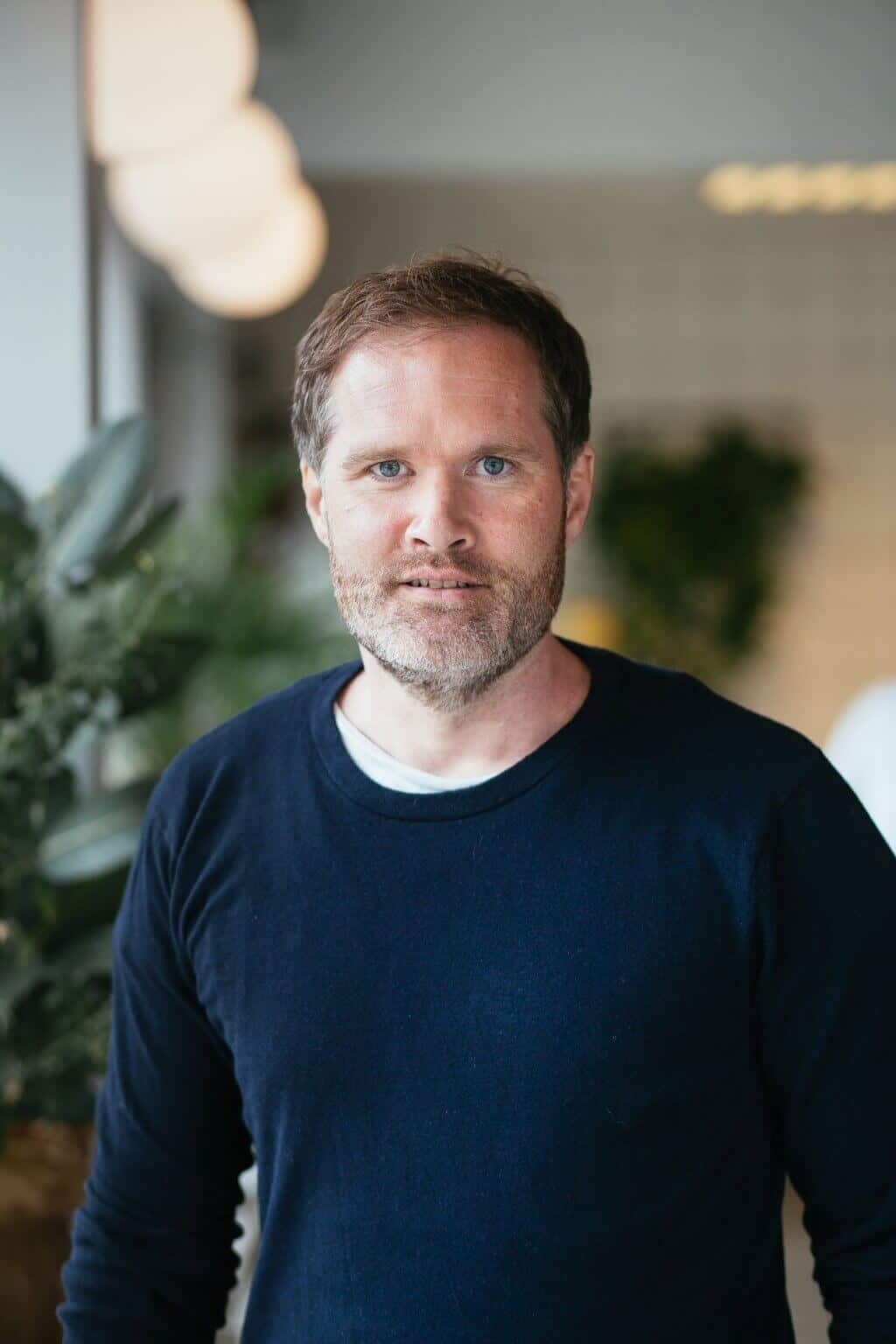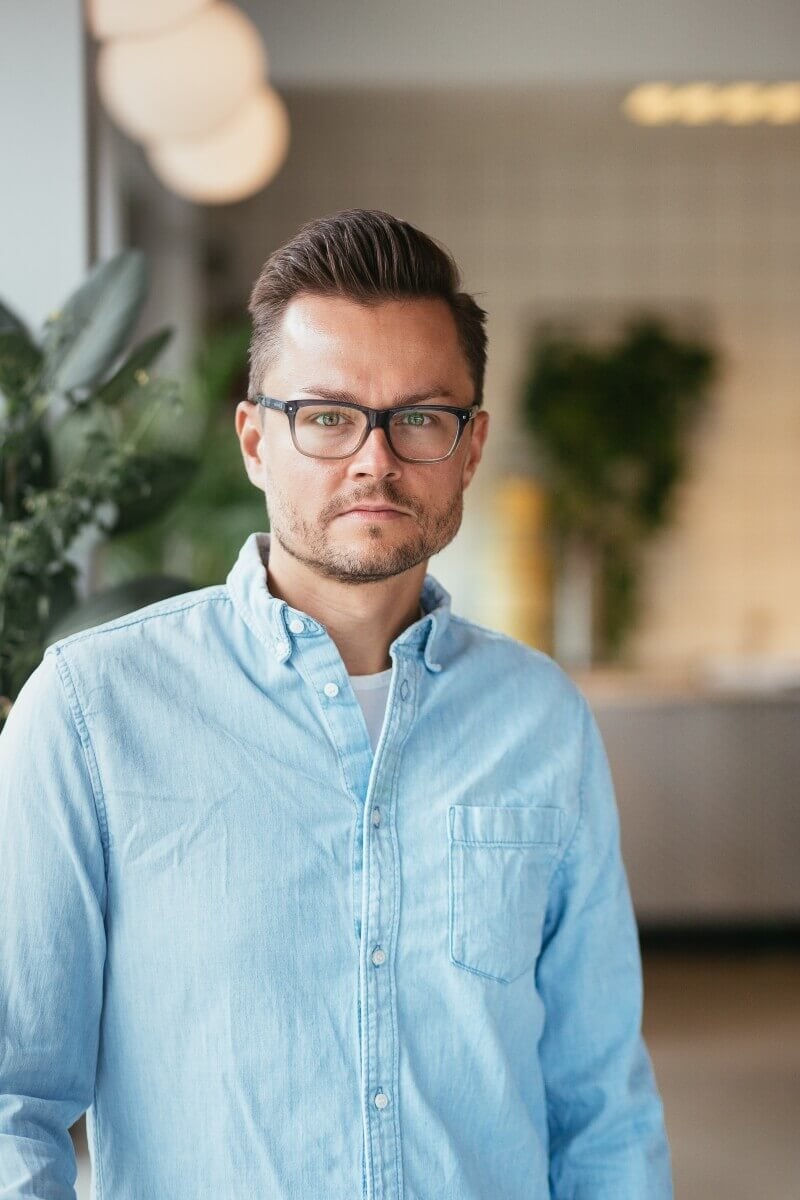The Hype Around Oat Milk – The Oatly Germany CEOs in Interview

Please install and activate Powerkit plugin from Appearance → Install Plugins. And activate Opt-in Forms module.

The “Post Milk Generation” is coming – that’s how the Swedish start-up “Oatly” describes it. They pioneered oat drink production and, after intensive research, invented “oat milk” in the 1990s.
Since 2018, the oat-based plant drink has also arrived in Germany and is so popular that it regularly sells out. Time and again, the company proves that there is more than “just” an economic background behind the brand. Oatly is particularly known for its polarizing campaigns, actions and petitions to label the Co2 footprint of food.
We spoke with German managing directors Tobias Goj and Helge Weitz about company values, the future of oat drinks, the lawsuit from the dairy industry, supply shortages, and the general shift toward plant-based nutrition.
Oatly was founded in 1994 as a scientific project of the Swedish University of Lund and has since established itself as the world’s number 1 oat drink producer. The original idea of our founder Rickard Öste was to develop a nutrient-rich liquid for people who could not tolerate cow’s milk or simply did not want to consume it. Since Oatly launched in German food retail in March 2018, we have been overwhelmed by demand. Within a few months, oats have replaced soy as the No. 1 category and our Barista Edition is by far the most successful branded milk alternative.
"The issues of sustainability, health and transparency are at the heart of everything we do and are part of all our decisions."
Tobias Goj Tweet
Our values are a pretty big deal for us. They are, so to speak, the most important and the core of everything we do. The topics of sustainability, health and transparency are central to us and are part of all decisions.
We are not perfect and it is not about being perfect. Perfectionism does not change an outdated food system. The dialogue does. The change we want to bring about in the world – in the way people eat, the way food is produced, and the way people and our planet are treated is beginning to take shape.

All our campaigns and activities are developed in collaboration with our “Oatly Department of Mind Control” in Sweden. This is our in-house creative agency, so to speak. We always focus on the creative idea, i.e. there are no KPIs, target group analyses or the like. We address issues that move us and that are missing from public discussions, such as the massive impact of the food industry on the climate. That is why we want to draw attention to it. But sometimes it’s just about non-sense and we want to make people smile with a wink. We also like to use giant posters that people can’t ignore at all.





What we eat and drink every day has a massive impact on the climate. It also means that any change we make in this area can make an immense difference. That is why we believe that the declaration of the carbon footprint of food should be mandatory – just as nutritional values must be declared as a matter of course. We have already started labeling our products with the CO2e value and hope that other companies will follow. This is the only way consumers can easily identify and compare the climate impact of different foods. So while we wait for our date for the hearing before the Petitions Committee, we are in the process of setting up an initiative. Together with like-minded partners such as NGOs, food companies, but also retailers, we want to take the public debate to the next level and transform the food industry together.
One of the biggest and most important challenges of our time is climate change, and food production plays a particularly important role in this. For the dairy industry, the three biggest factors impacting the environmental footprint are feed, manure, and methane gas. These three things do not exist in the production of oat drinks. Unfortunately, cows not only produce milk, but also methane gas, which is produced during digestion, as well as manure and thus large amounts of additional greenhouse gases – methane gas has a much stronger effect than CO2.
Oats also have several advantages from a health perspective: Our oat drink has a low saturated fat content and contains soluble fiber (beta-glucans), which can help keep cholesterol levels stable.
We see two major developments that will become entrenched in the long term: First, we are in the midst of a social paradigm shift. That is, more conscious and sustainable consumption is becoming extremely valuable in society, and people want to both eat healthier and do as little harm as possible to the planet through their own lifestyles. This is also the biggest driver from our perspective why more and more people are switching from cow’s milk to plant-based milk alternatives – especially oats.
The growth numbers for the overall plant-based dairy alternatives category are incredible, with the category averaging over 30% growth in sales over the last 12 months. In the last 3 months by as much as 46%. So growth is picking up even further at a very high level. Oats are the absolute growth driver here and contributed more than 80% of the total growth. Since the launch of Oatly in 2018, oats have grown from a niche category to the leading category in dairy alternatives and are now larger than soy and almond combined, with nearly 50% market share. We also see this development in our other markets such as the UK, Sweden and the USA.
Demand in Germany has grown extremely in recent years – and remains unbroken to date. As described earlier, the overall category has averaged over 30% growth in sales over the past 12 months – driven primarily by oats. We see this development in all our major markets. At the same time, the strong position of oats in Germany is outstanding – only the Nordic countries are already at a similar level. In the UK, oats have also been the top category since the end of 2019, and in the US, oats are also the absolute growth category within dairy alternatives.
In recent years, there have indeed been repeated bottlenecks in all the markets in which we operate. This is mainly due to the extreme increase in demand, which we could not have foreseen on this scale. However, we are working on long-term solutions to meet this high demand in the future by building and opening new factories at several locations around the world. But also our existing production facilities, such as in Landskrona (Sweden), are constantly expanding and now produce Oatly oat drinks 24/7.
"The ironic thing is that we have enjoyed increased demand for our products in all markets - regardless of the court case. "
Helge Weitz Tweet
In 2015, we ran a campaign in Sweden that compared oat drinks to cow’s milk: It’s like milk but made for humans. As a result, we were sued by Sweden’s dairy lobby, which claimed that the advertising message was misinformation that cast cow’s milk in a bad light. We, on the other hand, simply consider our oat drinks to be what they really are – a food ideally suited for humans. In the end, we lost the case and had to pay all court costs. The ruling also stated that we must remove certain statements from our communications and continue not to use them – at least in Sweden. The ironic thing is that we have enjoyed increased demand for our products in all markets, regardless of the court case. Furthermore, the lawsuit has shed light on how big the dairy lobby is and how big its muscle is, which is the case all over the world.
Basically, we are seeing a paradigm shift from animal-based to plant-based foods in many different countries, and with it the clear trend away from cow’s milk to plant-based milk alternatives. Cow’s milk will still be drunk, but consumption of plant-based drinks will continue to grow significantly. In fact, almost a third (29 percent) of the German population no longer drinks cow’s milk at all or only milk alternatives (GfK Study 2019). Be it for health reasons, because it tastes better or because animal welfare and environmental protection are important to you.
We want to make it easier for people to eat a plant-based diet and have just recently introduced new chilled oat drinks in three different fat contents that have the same functional property as cow’s milk – effectively mirroring it. We also added three cream cheese, cream and crème fraiche alternatives to supermarket refrigerated shelves so we can offer even more choice in the oat-based dairy alternatives segment. We are convinced that we are not only doing something good for our health, but also for the planet. Finally, by switching from cow’s milk to oat drinks, you can significantly reduce your personal carbon footprint. In principle, however, we can actually produce everything that is also available on a cow’s milk basis in a purely vegetable way on an oat basis. From there, the possibilities here are almost unlimited.


Tip: From September 2021, there will be the new Oatly Vanilla – the new Oatly oat drink with vanilla flavor on the market in Germany and Austria. Be sure to try!
Read more:
Photos: Oatly
Input your search keywords and press Enter.
